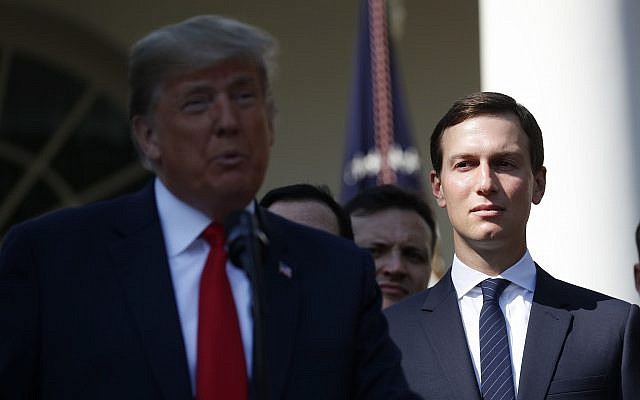Tahir Ali Khan |
Pakistan is a federation. All federating units should have an equal role and weight in the election of the Prime Minister. But at present, Punjab – one of the four units of the federation – is the only king-maker. It, alone, suffices for the election of the Prime Minister, who rules the entire federation.
Is it right to give so much influencing power to a federating unit over its counterparts?
Pakistani Parliament comprises of two chambers: The lower chamber, which is the National Assembly of Pakistan (the Assembly) and the upper chamber called the Senate of Pakistan (the Senate). The Assembly is elected by direct widespread suffrage and represents the citizens of Pakistan. The Senate is elected indirectly and represents the federating units of Pakistan.
Most of the power is, however, vested in the Assembly. It has the sole authority to elect the Prime Minister and pass the budget. However, the membership of the Assembly is based on the population that consists of it and Punjab enjoys an absolute 55% majority while the other three provinces, the Federal Capital, the Federally Administered Tribal Areas (FATA) and the Provincially Administered Tribal Areas (PATA) account for 45 percent of its remaining members.
It is a genuine attempt to highlight the problem of disparity between the federating units in the Pakistani Parliament, which not only goes against the spirit of the federation but, has also spread hatred against Punjab in smaller provinces.
The elections of May 11th, 2013 proved that a comprehensive victory in Punjab could enable a party to govern the entire federation irrespective of the collective mandate in the other three federating units –Sindh, Baluchistan and Khyber Pakhtunkhwa.
Punjab accounts for 148 of the directly-elected 272 seats in the Assembly and thus, dominates the country’s electoral arena. In 2013, the PML-N won primarily from Punjab –bagging 129 seats (including 17 independents) there and winning only 16 from other provinces – and, thanks to its landslide victory in Punjab, it went on to form the Federal Government.
Read more: Sindh Government is destroying Wheat after Sugarcane: PTI
Similarly, if a party grabs a comprehensive victory in other provinces but has poor show in Punjab, it cannot compete with a party that has won convincingly in Punjab alone.
This is tantamount to giving undue leverage to a federating unit vis-à-vis others. When Punjab alone could suffice for capturing the highest slot at Islamabad, It is of no surprise that every party will, necessarily and naturally, try to please and win over its electorate at the neglect of other provinces. This explains why there is frequent resort to Governor-rule, palace intrigues and vote of no-confidence to snatch the throne in Punjab.
The Assembly is elected by direct widespread suffrage and represents the citizens of Pakistan. The Senate is elected indirectly and represents the federating units of Pakistan.
This doesn’t mean that the financial share of Punjab –that has the biggest population and therefore, needs huge funds for development in health, education and other social sectors –should be slashed. It is neither fair nor desired. Neither does this writer want any reduced membership for Punjab in the Assembly. It should have the same number of seats there, even more if needed.
That being said, the point is, why can’t all federating units have equal weight and the same authority, power and role in electing the federal government as was been done in the 1973’s constitution for the election of the President of Pakistan and Senate members?To strengthen the federation and to control discontent in smaller provinces, all provinces need to be given equal weight in the Assembly for the election of the Prime Minister irrespective of their seats being retained or increased.
Read more: MQM in disarray
Surprisingly, the issue of disparity between the federating units in the ‘king-maker’ Assembly was neglected at the time of passage of 18th and 19th constitutional amendments. It has also been left out in the recent constitutional amendment on electoral reforms.
It is said that Punjab should be divided into two or three provinces. This, it is argued, will reduce its power and bring smaller provinces at par with it. It is, however, doubtful that this step would solve the problem as the new provinces will continue to work in unison to ensure their dominance in the Assembly. Moreover, though under the constitution, Senate has equal representation for the provinces and it has been given 1/4th representation in the federal cabinet. The body not only has no financial powers but also has no role in the election of the Prime Minister.
This doesn’t mean that the financial share of Punjab –that has the biggest population and therefore, needs huge funds for development in health, education and other social sectors –should be slashed. It is neither fair nor desired.
My point is, during the election of the President and the Senate members, all the four provinces have equal share and weight, irrespective of the difference of their strength in the Assembly and their respective assemblies, therefore, why can’t this parity be ensured in the election of the Prime Minister of Pakistan?
Further to this, in the federal and parliamentary system, normally, the second/upper chamber of parliament is introduced to give equal representation to federating units. However, it must have enough power to safeguard the interests of federating units against imbalances in their membership in the lower/popularly-elected chamber.
Previously, the 1956 and 1962 constitutions of the country were also, based on the principle of parity between the then West and East Pakistan and both accounted for half of the membership in the National Assembly. This, too, was a flawed mechanism. The principle of parity and One Unit was introduced by the West Pakistani politicians with mala fide intentions to bring the two wings at par with each other. East Pakistan accounted for over 56 percent of the country’s population and therefore, deserved greater membership in the Assembly. Consequently, the parity principle was not followed in other state spheres such as allocation of defense personnel, equipment and financial assets etc…
Read more: LPG importers give government ultimatum
With the current parliamentary structure in mind, there has been a sense of deprivation amongst Pakistan’s smaller units, it must transform its parliamentary/federal structure to its own needs. Accordingly, the ruling PML-N, in consultation with all parties, should initiate constitutional amendment in this regard. There are several ways to do this as mentioned below.
Firstly, by giving the federating units equal membership in the National Assembly, but that would be an injustice to Punjab which deserves greater representation in the Assembly for its large population.
The issue of disparity between the federating units in the ‘king-maker’ Assembly was neglected at the time of passage of 18th and 19th constitutional amendments. It has also been left out in the recent constitutional amendment on electoral reforms.
Secondly, The Senate, though consisting of the equal membership of all provinces, with limited power, is of little help to guard against political and economic imbalances. It should be made more powerful, especially in terms of vesting it with financial power and some role in the election of PM.
Read more: Customs slapped a billion rupee fine after stalling imported cars for…
Thirdly, giving equal weightage and power to all provinces in the Assembly for the election of the PM would greatly affect the outcome. It doesn’t matter if the present membership of Punjab is retained or even increased if need be, all provinces, without any consideration of their seats, should have an equal role and weightage in election of PM.
Lastly, the Electoral College for the PM should be changed so that he/she is elected the way the President of Pakistan is elected these days- that is by the National Assembly, the Senate and all the Provincial Assemblies.
The issue must not be disregarded as anti-Punjab propaganda or an attempt to create new controversies amid too many others. Rather, it is a genuine attempt to highlight the problem of disparity between the federating units in the Pakistani Parliament, which not only goes against the spirit of the federation but, has also spread hatred against Punjab in smaller provinces.
The writer is an academic and columnist who can be reached at tahirkatlang039@gmail.com The views expressed in this article are authors own and do not necessarily reflect the editorial policy of Global Village Space.














